- Home
- Willow Rose
Where the Wild Roses Grow Page 10
Where the Wild Roses Grow Read online
Page 10
“Dad? I…I…”
Her father didn’t say a word. He stared at her for a long agonizing minute, then shook his head and closed the door again.
37
July 2015
It wasn’t hard to find Fiona Delaney’s childhood home. The lady answering the door was old and pale. She wore a necklace with a gold cross around her neck.
“Yes?”
I smiled. Morten stood behind me. I knew these kinds of things made him feel uncomfortable. Approaching people when he wasn’t on duty as a police officer wasn’t his favorite thing, to put it mildly.
“Hello. My name is Emma Frost. I am an author. We’re visiting from Denmark. I was wondering if we could come in?”
The woman looked at us suspiciously. “And who is he?”
“He’s my boyfriend. We’re here on vacation.”
Morten smiled and nodded. It came off real awkward and slightly creepy.
“I wanted to ask about your daughter,” I said. “I’m thinking about writing about the victims of this Rose Killer. You know, tell their story, who they were and so on. And I was wondering if you had any photos of her that we could borrow. I’ll make sure you get them back, don’t worry. But I need your help to tell about who she was and what she was like.”
The woman still looked skeptical. “A book, you say? About my daughter? My Fiona?”
I could tell she was proud of her daughter.
“Yes. It will be in Danish, though, but most of my books are being sold in many countries. Not in Ireland, yet, but I have a few out in the UK, so I don’t think it’ll be long. I’ll send you a signed copy, even though it’ll be in Danish.”
“She was a very special child,” Mrs. Delaney said. Her eyes lit up behind the sorrow. “Alright. I guess I could tell you a little about her. Come on in. I’ll make some tea.”
“Thank you so much for helping us with this, Mrs. Delaney,” I said, when we had come inside and she had brought out the tea and shortbread. She poured me a cup and served me some shortbread. I tasted it. It wasn’t too bad.
“Please call me Anna,” she said, before she left the room and returned with a stack of photo albums in her arms. I smiled and helped her with them. I really liked the way this was going. Anna was so nice, and as soon as she was allowed to talk about her daughter, she lit up completely and told us everything. I tried to write notes along the way and used my phone as a voice recorder on the table, to make sure I got everything. I nodded and listened as she spoke excitedly about Fiona’s first school years, about her best friends, that she only had a few of, and about how good Fiona was to others and how she sang with the choir at the local church every Sunday at mass.
“She loved going to church, Fiona. She especially loved Father Allen. We are all very proud of him around here, as you can imagine.”
She pulled out a picture of a Catholic priest with a small girl standing next to him. The priest had his arm around her shoulder and looked at her lovingly.
“Here she is with him,” she said and pointed at the girl. “This was taken at her communion. Those two had a special bond.” Anna paused and seemed lost for a few seconds.
“Here, you can keep this for your book,” she said, and handed me the photo. “Fiona would have liked to include it.”
I took the picture and looked at it. I felt like I had seen the priest somewhere before, but I couldn’t figure out where. “You said you are all very proud of Father Allen around here. Why is that?” I asked.
“He’s such a good priest. Has been such a blessing to our community…you haven’t heard of him?” she asked, startled.
I looked at Morten, who shook his head. “No, I don’t think we have,” I said. “I mean his face does look familiar, but…”
“Well, he’s a writer just like you, my dear. And he’s been on television and hosts his own radio show as well. He’s quite the man around here. You’re sure you haven’t heard of him? He became world famous in 1979 when the Pope himself visited Ireland. Father Allen sang to the crowd of two hundred thousand at Ballybrit before the Pope made his appearance. It is still something we talk about, even though it was an awful lot of years ago.”
“Now I remember hearing about him,” I said. “He’s quite a charismatic figure within the church, isn’t he? He has been particularly devoted to raising the issue of poverty in Ireland, right?”
Anna nodded. “Yes, that is our Father Allen. Such a good man. He has done so many good things. Many churches could learn from him. After all, taking care of the children and feeding the poor is what we all need to do, right?”
I couldn’t argue with that. I had been dancing around the difficult question for quite some time, but I knew I had to ask it.
“I don’t see a father in any of the pictures,” I finally managed to say. “Was there no father in Fiona’s life?”
Anna paused for a second while looking at another photo. She swallowed, then smacked her lips, before she placed the picture in front of me. “This is one of her and her dog. Boy did she love that dog.”
I looked down at the picture. It was a very nice dog, but I never got an answer to my question.
“So, there was no father?” I asked again.
Anna pulled out another picture and placed it in my hand. I felt like her eyes were avoiding mine.
“Here is one of her when we went to Dublin to visit my brother in the summer of 2000. That was a wonderful trip. Fiona loved hanging out with my brother’s children. He has three…”
Anna stopped herself and I could tell she repressed her tears before she continued. “Three girls of his own. They’re a little older than my Fiona. I had her late in life…”
“But what about her father?” Morten asked. “Who was he?”
“What was that?”
“The father,” I said. “Was he never there for Fiona?”
“Oh, my. What a horrible host I am being. You’re both out of tea, and here I am babbling away. Here, let me pour you some more. I have more shortbread in the kitchen if you like. I could go get it?”
“I’m fine thanks,” I said and looked at Morten.
“I’m good too.”
Anna looked confused. “I’ll go get some anyway,” she said, and left the living room. “Just in case.”
“Maybe it’s not something she likes to talk about,” Morten whispered when she was gone.
“You think, Sigmund?” I said.
He smiled. “Maybe we should stop asking. It seems to make her uncomfortable.”
Anna returned with a basket of shortbread. She seemed perplexed and a little out of it, to be frank. I looked at Morten, then back at her.
“I think we have what we need,” I said, while getting up. I reached out my hand and shook hers. “I’ll let you know if we need to know anything else.”
Anna seemed relieved. Her old bony hands felt so fragile in mine. “Alright, then. Thank you for coming.”
38
July 2015
“I can’t believe how she kept avoiding that question,” I said, after we had gotten back into the car holding the pictures of Fiona’s childhood in my hand.
“Maybe he was a really bad guy or something,” Morten said, and turned on the engine. We drove off towards center of the town. On the way, we passed St. Mary’s Parish Church, where Fiona had sung in the choir and had her communion. Where Father Allen was still priest.
“Yeah, he might have been, but still,” I said. “She could just have said, nope, he wasn’t in the picture at all, then I would have stopped asking. No, it was the way she avoided it that made me curious. “
“Maybe he hurt her badly or maybe she didn’t even know him at all,” Morten suggested.
“She just didn’t seem like the type to have a one-night stand, if you know what I mean.”
“You might have a point. She seemed like a devoted Catholic. The virtue of Chastity.”
“How old was she, anyway? She seemed very old,” I said.
“Yeah, I would sa
y she was in her eighties or at least late seventies,” Morten said.
I looked at him. “But that can’t be. Fiona was only twenty-two? She would have been at least in her fifties when she had her?”
“She did say she had her late in life,” Morten said.
“A little late? That’s an understatement.”
“But not impossible, though. I remember hearing stories about women in their sixties becoming pregnant.”
I nodded, remembering hearing about those too. But still, I kept thinking to myself it all seemed a little strange. There was also something about that picture of Father Allen and the way he looked at young Fiona that rubbed me the wrong way. I couldn’t put my finger on it, but something wasn’t right.
“So, what’s next?” Morten asked when we stopped for a red light.
I pulled out a piece of paper and read an address for him. He plugged it into the GPS before we continued.
“And who might we find here?” he asked.
“Bridget Callaghan’s family, I hope. So far, I’ve only found one name on this address. A Mary Margaret Callaghan.”
“Alrighty, then. Let’s go have a chat with her as well.”
We drove only for a few minutes before we pulled up in front of a small townhouse, very much like the one Anna Delaney had lived in. The yard in front was neatly kept with beautiful flowers, many of them roses. I had always loved roses, but now the mere sight of them made my skin crawl.
I rang the doorbell. It took awhile before someone came to the door. An older lady with a cross around her neck opened it.
“Yes?”
“Are you Mrs. Callaghan?” I asked.
“I am. What’s this regarding?”
“Bridget Callaghan. Was she your daughter?”
“She was. Are you a journalist? I have already told you people that I am not going to say anything.”
“I am so sorry for your loss. No, I am not a journalist. I’m an author. I am writing about the victims, the two women, your daughter and Fiona Delaney. We are coming directly from Anna Delaney’s house, where she told us everything about her daughter and showed us pictures. We were hoping you would do the same for us?”
“Well, you were hoping wrong. I will do no such thing,” Mrs. Callaghan said, almost snorting when she spoke.
“But…”
“Now, get off my property,” she said.
“Alright,” I said. “I respect your wishes.”
“Good-day.”
“Wait a second,” Morten said. “Could you at least answer us one question? Where do we find Bridget’s father?”
“You don’t,” Mrs. Callaghan said.
“Is there no father?” I asked.
“I don’t see how that is any of your business. Now, good-day,” she said and slammed the door.
39
November 1977
“I’m sending you away.”
Violet looked up at her father. They were sitting at the dining table eating their supper, as usual, when the words fell. Violet’s father hadn’t spoken a word to her for weeks, not since he had walked in on her and seen her stomach. On that day, when she finally came down to do her chores, he had said nothing, not even looked at her, and it had continued that way ever since. Violet had no idea what to do…if he was angry or disappointed or what he was thinking. She didn’t even know if he had told her brothers.
Violet was thrilled that he had finally opened his mouth and spoken to her directly, but she wasn’t happy with what she heard.
“What?”
“You heard me,” he said and finished his pint. He still didn’t look at her.
“But…but you can’t…” Violet’s voice was breaking. She suddenly felt so lost, so alone in the world. “You can’t do that, Father.”
“I am sending you away to have your baby somewhere where they know how to take care of these kinds of things. This is no place for a baby. You’re leaving first thing in the morning.”
Violet felt like screaming. No one around the table said a word. All of her brothers kept quiet and looked at their plates.
“But…but you can’t do that,” she repeated, not knowing what else to say. How was she to persuade him not to do this to her?
“It’s what’s best for you and the baby. The nuns at this home will help you with the birth and with taking care of the baby afterwards. It’s the best thing, Violet. Trust me.”
“Or maybe it’s what’s best for you, so you don’t have to look at me and feel ashamed of me, is that it? Am I that big of an embarrassment for you? Well, I’m not going anywhere.”
Finally, her father looked at her. Violet wanted to scream for him to change his mind, for him to love her the way he had loved her when she was just a child, when she used to sit in his lap and listen to his stories, when he told her she could do anything in this world, because she was smart and good, back when she could make him laugh and when everything she did was adorable and worthy of praise. How could everything have gotten so terribly wrong? Would she ever feel his love again? Would he ever look at her and not feel ashamed?
“You have brought great shame on this house. You will do as I say. You will go to this home, have your baby, and raise it with the nuns. This is the only way we can restore our family name.”
Then he gave her the look that she knew so well. The one that told her it was the end of that discussion, that he wasn’t going to talk about this matter ever again.
So, this was his answer to all of this? To send her away? To hide his shame? Would he forget about her once she was gone? Would he make her brothers forget her existence as well?
When the car came to pick her up the next morning and two nuns came to the front door, her brothers didn’t even look at her. They too were filled with the shame their father had felt. Only the oldest, Brian, held her quickly in his arms. He had always been her favorite. Violet cried heavily.
“Dad is right, Violet,” he said. “None of us know anything about having a baby or have the faintest idea how to raise a child properly. Mom is not here, and we’re all men. This is the right thing to do. But I’ll miss you, kiddo.”
Violet cried and tried to cling on to him, but the two nuns grabbed her arms and started pulling her away from him.
“Please, don’t forget about me,” she whispered just before she was dragged away.
40
July 2015
Carrick Mulligan couldn’t paint. He couldn’t sleep or eat either. Well, at least not as much as he used to. He mostly ate peanuts all day while painting. Or not painting, which was the case these days.
He stared at the canvas and what he had worked on all day. It looked like all the others in the studio. Nothing special, nothing extraordinary. And he had an exhibition coming up in five weeks. Five weeks! And he had hardly anything ready. The one he was looking at now was worthless. A Kindergartener could have made this.
He grabbed a brush and tried to fix something on the eye of the woman, but ended up making it worse.
Carrick grunted and pulled his hair. Then he kicked a can of paint and it tipped onto the floor, and blue paint ran onto the wood. Carrick didn’t care. He felt such angry frustration.
He reached for his pack of cigarettes, then lit one. The smoke didn’t make him feel better either. He went to the kitchen and grabbed a beer, then opened it and drank. He felt so tired, so exhausted.
He looked at the phone. He hadn’t heard from Deidre in two days. They were supposed to meet for dinner tonight, finally.
Carrick scratched his crotch. He was hard just from thinking about her. It was going to be so good to finally have her. This time, he would. He wasn’t going to let her go.
Pedro, his cat and only companion that lasted more than a few weeks, came up to him and rubbed against his legs. Carrick reached down and caressed it.
“Yes, Pedro. You bet I am going to pin her down. Once I’ve gotten her in the sack, I can finally move on. Then I can finally start living again and painting again.”
Carrick looked at his watch. It was getting late. He was meeting her at the restaurant at eight. He needed to get ready. He didn’t want to shower. He liked to smell like a real man. He didn’t want to shave either. There was no reason to let Deidre know how desperate he was. He wanted to be a man and look like one. She was going to love that. All women did. Carrick laughed while watching his own reflection in the window. He was going to make her addicted to him, wasn’t he? Oh, yes, he was. No one resisted his charisma, his magic. She wasn’t going to know what hit her once he was done with her. She was going to call him every day from now on, she was going to come running and knocking on the door to his studio and begging for more. And he was going to refuse her. Again and again, and the more desperate she was, the better he would be at painting. The more inspired he would become. And then he would move on to the next girl. Finally, he would move on. It annoyed him immensely that he hadn’t been able to look at another girl since he met Deidre. Carrick always looked at girls, but every time he went out for a pint at the pub, where he usually met the ladies, where the ladies would throw themselves at him, he would feel disgusted and uninterested.
Just because of her.
Carrick finished his beer and drowned his cigarette in the remains. Then he found a clean shirt and put it on, leaving the top three buttons open, so Deidre could get a great glimpse of his hairy manly chest when he leaned over the table during dinner. He found a colorful scarf to wrap around his neck, one that complemented his eyes, like some woman once told him. He reused the same jeans he had been wearing all day; even though they had some paint stains on them, he thought they looked cool. Then he found a cologne in the cabinet that he hadn’t used for a long time and sprayed it on his wrists and a little in his hair. The mixture of sweat from working all day and the cheap cologne made him seep of raw manliness.

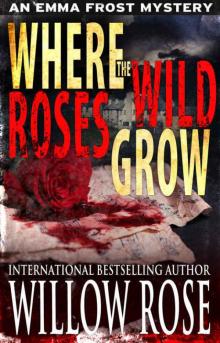 Where the Wild Roses Grow
Where the Wild Roses Grow The Eva Rae Thomas Mystery Series Box Set 2
The Eva Rae Thomas Mystery Series Box Set 2 Girl Divided
Girl Divided Her Final Word
Her Final Word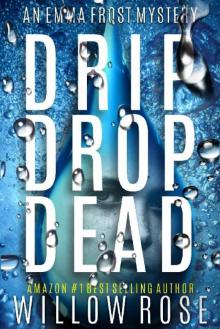 DRIP DROP DEAD (Emma Frost Book 12)
DRIP DROP DEAD (Emma Frost Book 12)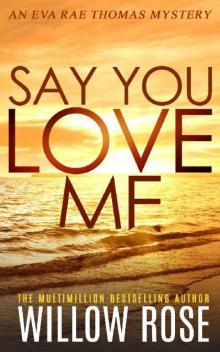 SAY YOU LOVE ME (Eva Rae Thomas Mystery Book 4)
SAY YOU LOVE ME (Eva Rae Thomas Mystery Book 4) Emma Frost Mystery Box Set 4
Emma Frost Mystery Box Set 4 The House That Jack Built
The House That Jack Built Order and Chaos
Order and Chaos Chaos and Courage (The Vampires of Shadow Hills Book 10)
Chaos and Courage (The Vampires of Shadow Hills Book 10)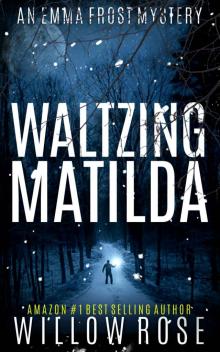 Waltzing Matilda (Emma Frost Book 11)
Waltzing Matilda (Emma Frost Book 11)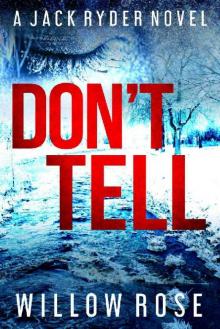 DON'T TELL (Jack Ryder Book 7)
DON'T TELL (Jack Ryder Book 7) TO DIE FOR (Eva Rae Thomas Mystery Book 8)
TO DIE FOR (Eva Rae Thomas Mystery Book 8) Eva Rae Thomas Mystery Box Set
Eva Rae Thomas Mystery Box Set Chaos and courage
Chaos and courage The Vampires of Shadow Hills Series: Book 4-6
The Vampires of Shadow Hills Series: Book 4-6 SUCH A GOOD GIRL: An urgently timely gripping mystery with a heartbreaking twist (Eva Rae Thomas Mystery Book 9)
SUCH A GOOD GIRL: An urgently timely gripping mystery with a heartbreaking twist (Eva Rae Thomas Mystery Book 9) War and Order
War and Order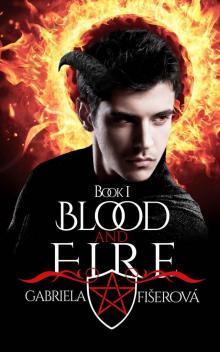 Blood and Fire
Blood and Fire Magic and Witchcraft
Magic and Witchcraft Beauty and Beasts
Beauty and Beasts HER FINAL WORD (JACK RYDER Book 6)
HER FINAL WORD (JACK RYDER Book 6) LET ME GO (Eva Rae Thomas Mystery Book 5)
LET ME GO (Eva Rae Thomas Mystery Book 5) Witchcraft and War (The Vampires of Shadow Hills Book 7)
Witchcraft and War (The Vampires of Shadow Hills Book 7)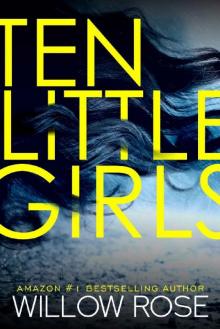 Ten Little Girls
Ten Little Girls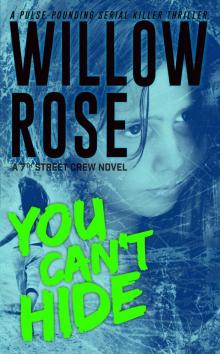 You Can't Hide: A pulse-pounding serial killer thriller (7th Street Crew Book 3)
You Can't Hide: A pulse-pounding serial killer thriller (7th Street Crew Book 3)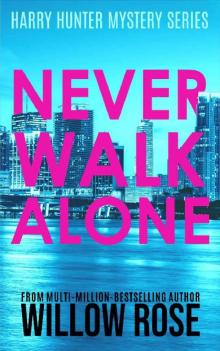 Never Walk Alone
Never Walk Alone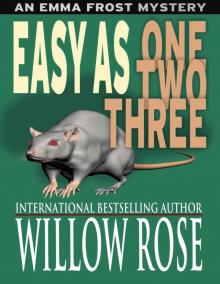 Easy as One Two Three (Emma Frost)
Easy as One Two Three (Emma Frost)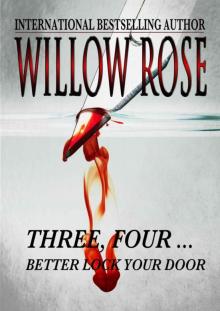 Three, Four ... Better lock your door. (Rebekka Franck #2)
Three, Four ... Better lock your door. (Rebekka Franck #2)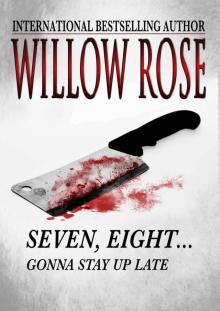 Seven, eight ... gonna stay up late (Rebekka Franck #4)
Seven, eight ... gonna stay up late (Rebekka Franck #4)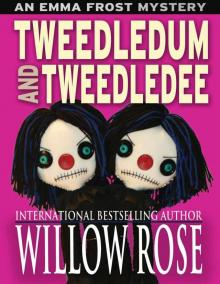 Tweedledum and Tweedledee (Emma Frost)
Tweedledum and Tweedledee (Emma Frost)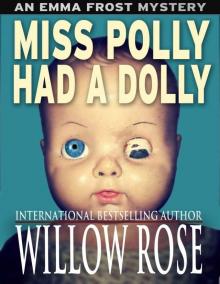 Miss Polly had a Dolly (Emma Frost #2)
Miss Polly had a Dolly (Emma Frost #2) Fire and Beauty
Fire and Beauty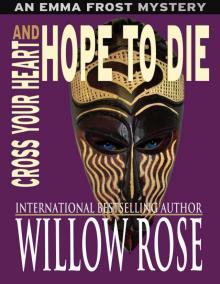 Cross your heart and hope to die (Emma Frost #4)
Cross your heart and hope to die (Emma Frost #4) Beyond (Afterlife book 1)
Beyond (Afterlife book 1) Jack Ryder Mystery Series: Vol 1-3
Jack Ryder Mystery Series: Vol 1-3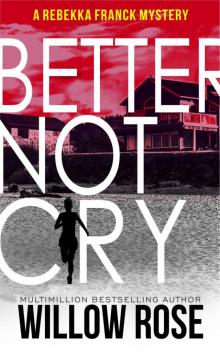 Better Not Cry (Rebekka Franck Book 8)
Better Not Cry (Rebekka Franck Book 8) Emma Frost Mystery Series Vol 7-9
Emma Frost Mystery Series Vol 7-9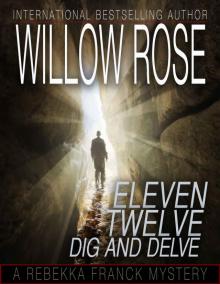 Eleven, Twelve ... Dig and delve (Rebekka Franck Book 6)
Eleven, Twelve ... Dig and delve (Rebekka Franck Book 6)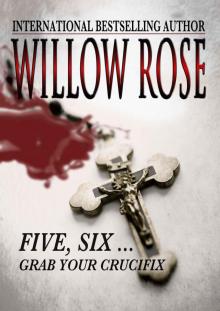 Rebekka Franck - 03 - Five, Six ... Grab Your Crucifix
Rebekka Franck - 03 - Five, Six ... Grab Your Crucifix It's Not Over
It's Not Over Harry Hunter Mystery Box Set
Harry Hunter Mystery Box Set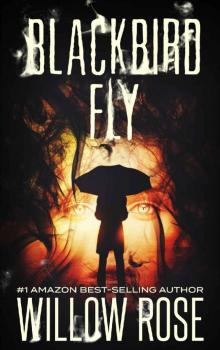 Blackbird Fly
Blackbird Fly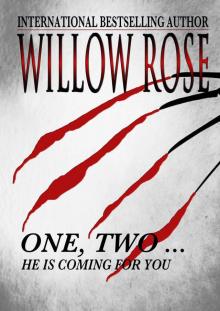 One, Two ... He Is Coming for You
One, Two ... He Is Coming for You I am Wolf (The Wolfboy Chronicles)
I am Wolf (The Wolfboy Chronicles) Beasts and Magic (The Vampires of Shadow Hills Book 5)
Beasts and Magic (The Vampires of Shadow Hills Book 5) Courageous: Afterlife Book Four
Courageous: Afterlife Book Four NO OTHER WAY (Harry Hunter Mystery Book 3)
NO OTHER WAY (Harry Hunter Mystery Book 3) Flesh and Blood (The Vampires of Shadow Hills Book 1)
Flesh and Blood (The Vampires of Shadow Hills Book 1)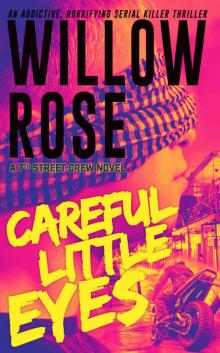 Careful little eyes: An addictive, horrifying serial killer thriller (7th Street Crew Book 4)
Careful little eyes: An addictive, horrifying serial killer thriller (7th Street Crew Book 4)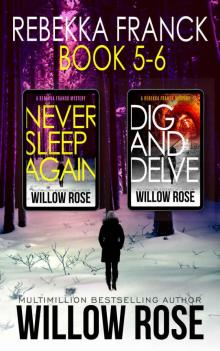 Rebekka Franck Box Set
Rebekka Franck Box Set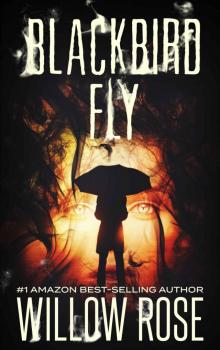 Blackbird Fly (Umbrella Man Trilogy Book 2)
Blackbird Fly (Umbrella Man Trilogy Book 2)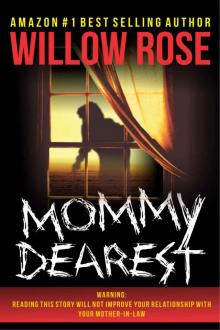 Mommy Dearest
Mommy Dearest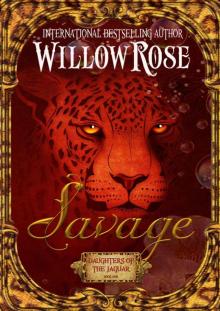 Savage (Daughters of the Jaguar)
Savage (Daughters of the Jaguar) Jack Ryder Mystery Series: Vol 4-6
Jack Ryder Mystery Series: Vol 4-6 A Gypsy Song (The Eye of the Crystal Ball - The Wolfboy Chronicles)
A Gypsy Song (The Eye of the Crystal Ball - The Wolfboy Chronicles)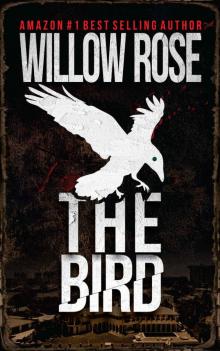 The Bird
The Bird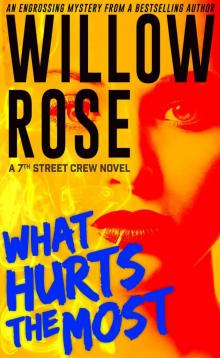 What Hurts the Most: An engrossing, heart-stopping thriller (7th Street Crew Book 1)
What Hurts the Most: An engrossing, heart-stopping thriller (7th Street Crew Book 1)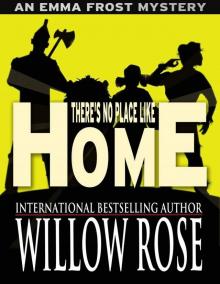 There's no place like HOME (Emma Frost Book 8)
There's no place like HOME (Emma Frost Book 8) Beasts and Magic
Beasts and Magic Flesh and Blood
Flesh and Blood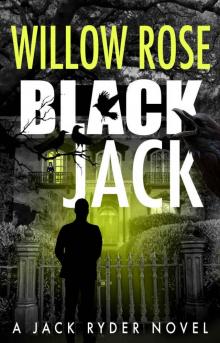 Black Jack: A nail biting, hair-raising thriller (Jack Ryder Book 4)
Black Jack: A nail biting, hair-raising thriller (Jack Ryder Book 4) The Afterlife Series Box Set
The Afterlife Series Box Set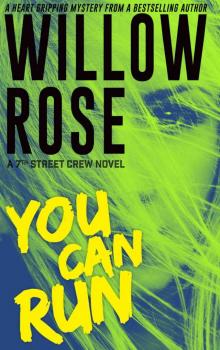 You Can Run: A heart gripping, fast paced thriller (7th Street Crew Book 2)
You Can Run: A heart gripping, fast paced thriller (7th Street Crew Book 2)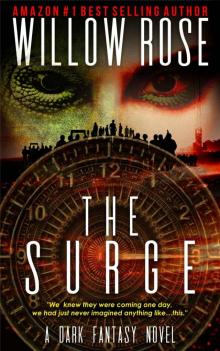 The Surge
The Surge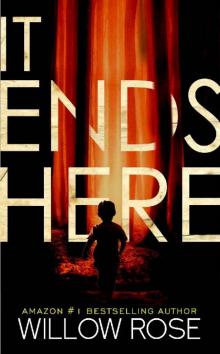 It Ends Here
It Ends Here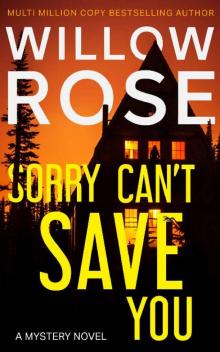 SORRY CAN'T SAVE YOU: A Mystery Novel
SORRY CAN'T SAVE YOU: A Mystery Novel The Afterlife series Box Set (Books 1-3)
The Afterlife series Box Set (Books 1-3)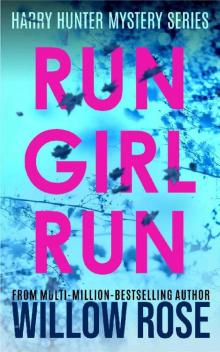 Run Girl Run
Run Girl Run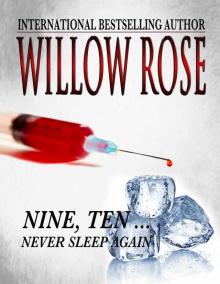 Nine, Ten ... Never sleep again (Rebekka Franck #5)
Nine, Ten ... Never sleep again (Rebekka Franck #5) Rebekka Franck Series Box Set vol 1-5
Rebekka Franck Series Box Set vol 1-5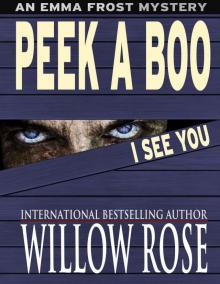 Peek A Boo I See You (Emma Frost #5)
Peek A Boo I See You (Emma Frost #5)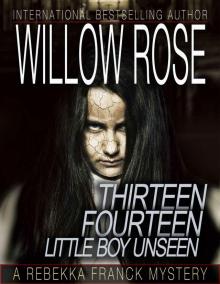 Thirteen, Fourteen ... Little boy unseen (Rebekka Franck Book 7)
Thirteen, Fourteen ... Little boy unseen (Rebekka Franck Book 7)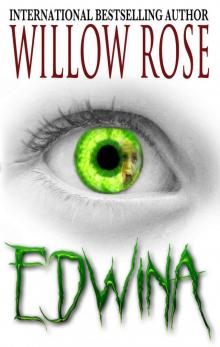 Edwina
Edwina Fire and Beauty (The Vampires of Shadow Hills Book 3)
Fire and Beauty (The Vampires of Shadow Hills Book 3)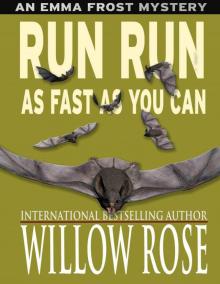 Run run as fast as you can (Emma Frost #3)
Run run as fast as you can (Emma Frost #3) Horror Stories from Denmark Box set
Horror Stories from Denmark Box set Rebekka Franck Series Box Set
Rebekka Franck Series Box Set Witchcraft and War
Witchcraft and War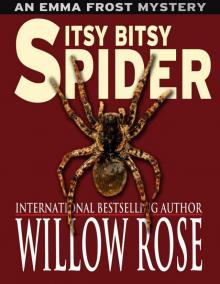 Itsy Bitsy Spider (Emma Frost #1)
Itsy Bitsy Spider (Emma Frost #1)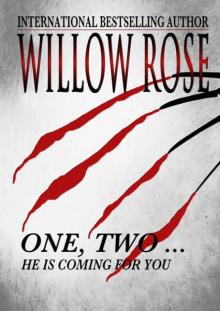 One, Two ... He is coming for you (Rebekka Frank #1)
One, Two ... He is coming for you (Rebekka Frank #1)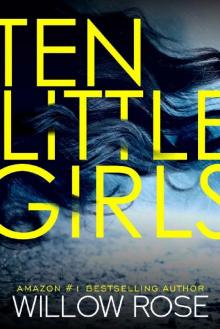 Ten Little Girls (Rebekka Franck Book 9)
Ten Little Girls (Rebekka Franck Book 9) Broken
Broken